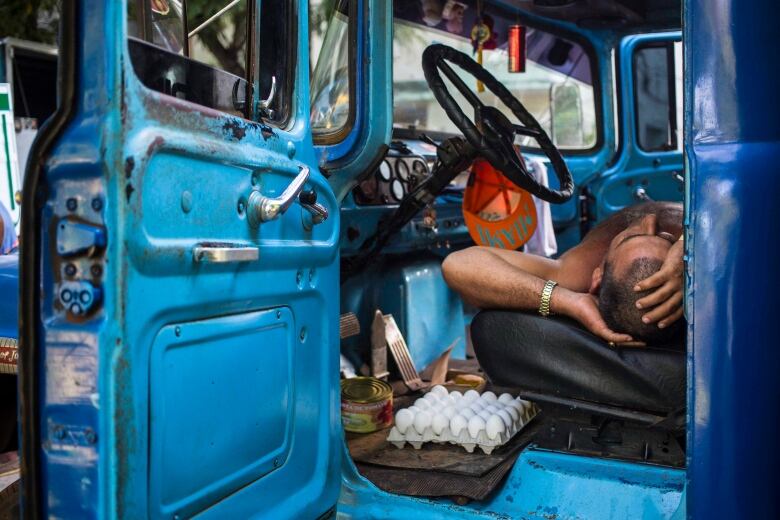Cash-strapped Cuba plans fresh austerity measures as finances worsen
'We cannot spend more than we earn,' minister says as island's economy grows just 1% annually

Cash-strapped Cuba plans fresh austerity measures,and will pressure the sluggish bureaucracy to tighten its belt and cut red tape to address weak growth, falling export earnings and rising debt.
The economy has averaged oneper cent annual growth over the last three years, compared with a fiveper cent to sevenper cent rate economists say is needed to recover fully from a 1990s depression caused by the fall of its former benefactor, the Soviet Union.
The communist-run country has more recently been hit by the economic collapse of its new sponsor and strategic ally, Venezuela, which began to send fuel and cash its way in exchange for doctors and medicine 18 years ago.
Other external shocks, such as Hurricane Irma in late 2017 and the Trump administration's tightening of U.S. sanctions, have also weighed on the Caribbean island nation's economy.
"The 2019 plan is one of adjustment to current realities. We cannot spend more than we earn," Economy Minister Alejandro Gil Fernandez said at a session of the National Assembly last week.
State-run companies account for and control most economic activity, including finances and foreign trade, through a planned economy.
Cuba last reported its foreign debt at $15.8 billion US in 2015. It began delaying payments to some suppliers and investors in 2016, with Western diplomats and businessmen estimating the short-term debt accumulated since then at more than $1.5 billion US.
President Miguel Diaz-Canel told the national assembly that next year, the country would slightly reduce the backlog of overdue payments through austerity measures and by drawing on a glut of inventory and emergency reserves.
Diaz-Canel and Gil said plans for the economy to grow 1.5 per cent, after an anemic 1.2 per cent this year, were based in part on doing away with bureaucratic habits and cutting waste and theft.
"The plan must be executed immediately. We have to review the system to insure there is no room for bureaucrats to maneuver," Diaz-Canel said, threatening to replace them if they stuck to their old ways.
Crisis to continue
Venezuelan oil deliveries have fallen at least 40 per cent since 2014, forcing Cuba to import from Russia and Algeria.
Cuba imports more than half the fuel it consumes.
Gil said fuel consumption would be cut from 91 tonnesper million pesos in gross domestic product this year to 84 tonnes in 2019.

Foreign trade fell around 25 per cent from 2013 through 2017, with annual imports dropping to $11.3 billionfrom $15.6 billion, according to the government.
Gil said trade declined further in 2018, without providing figures.
The minister said exports would increase sixper cent next year while imports would be slashed 11 per cent compared with the 2018 plan, in an economy heavily dependent on raw materials and machinery from abroad for nearly everything it produces.
Economist Pavel Vidal, a former central bank analyst who teaches at the Universidad Javeriana Cali in Colombia, called the 1.5 per cent growth target "reasonable" as sugar, agriculture and tourism had a particularly bad 2018 due to Hurricane Irma, meaning that growth would come from a low starting point.
"What is most worrisome is the payment crisis, which continues to grow, and creditors are losing patience," said Vidal, who has authored various reports on Cuba in conjunction with international lending institutions.
Western diplomats who met with top officials recently said the Cubans said little about how they planned to surmount the crisis and gave no indication they would allow more private initiative and capital accumulation by citizens.
"Obtaining inputs and credit on the international market will be more difficult in 2019," Vidal said.












_(720p).jpg)


 OFFICIAL HD MUSIC VIDEO.jpg)
.jpg)



























































































